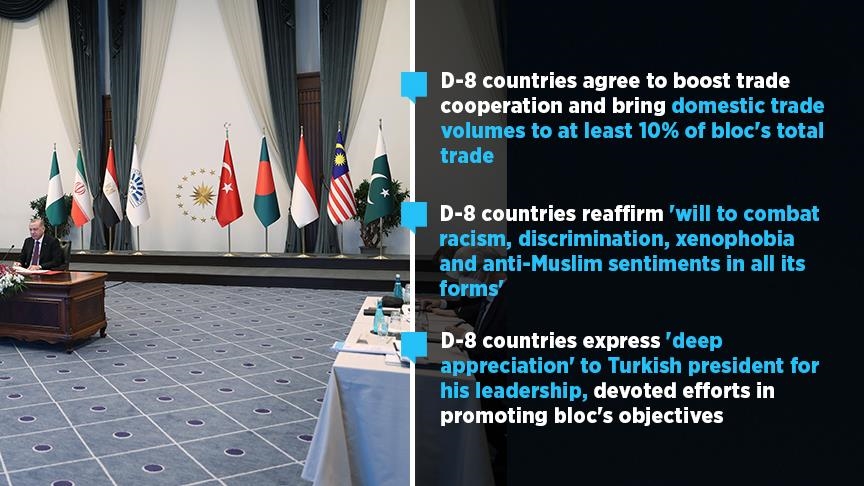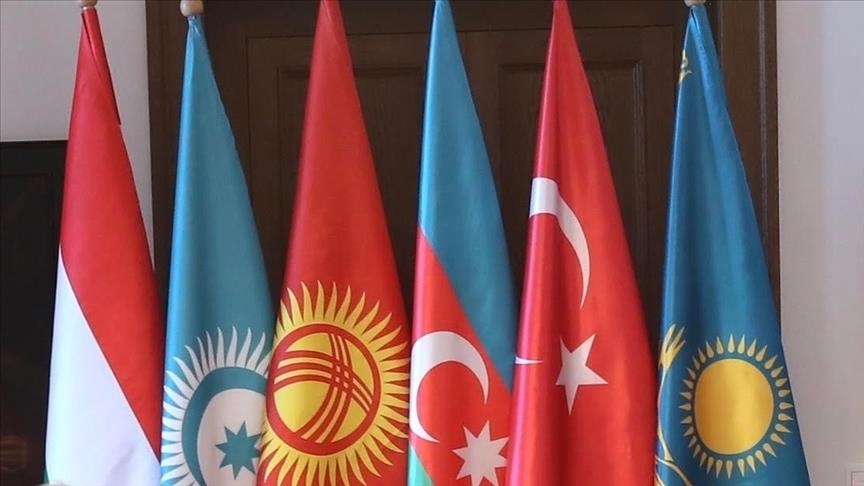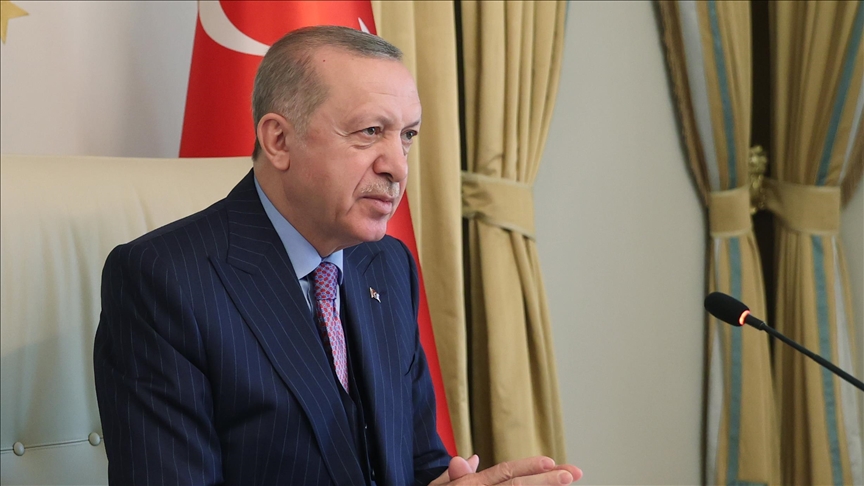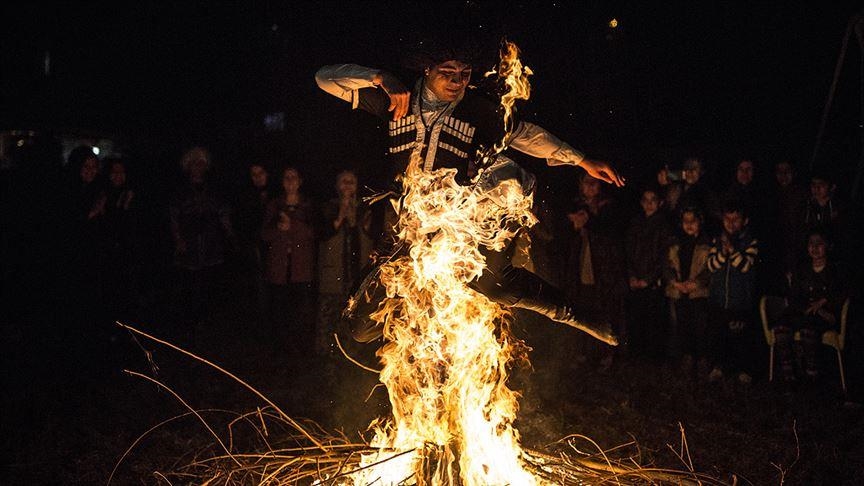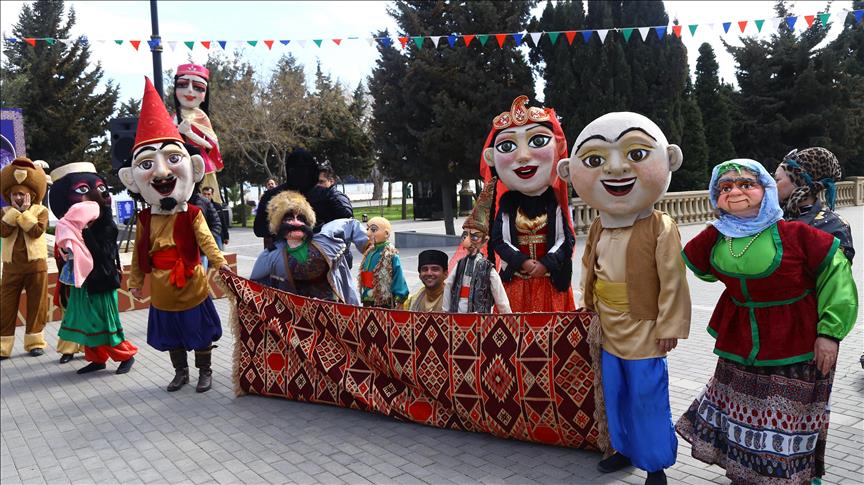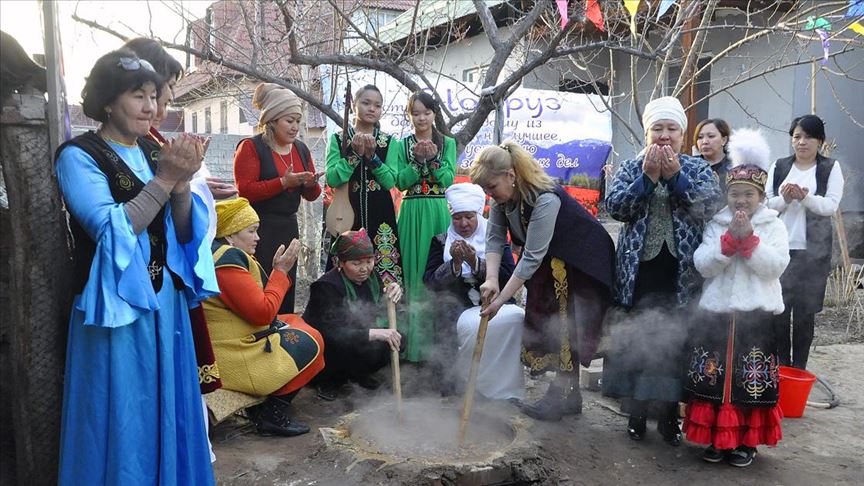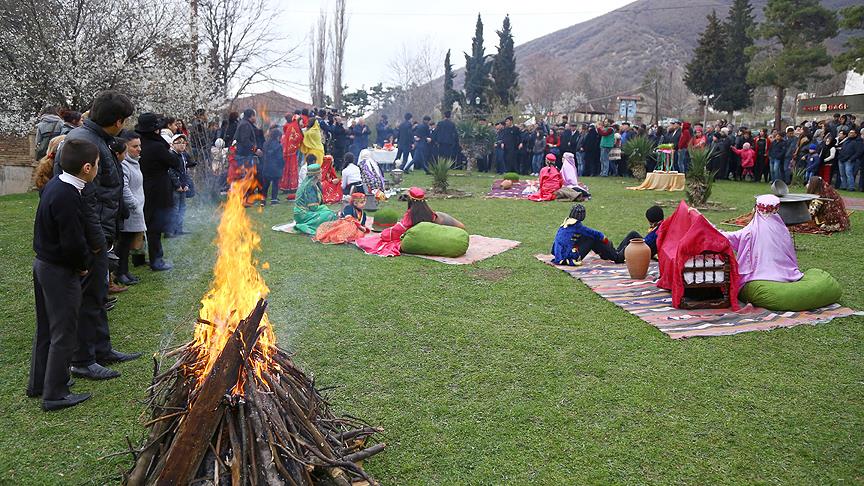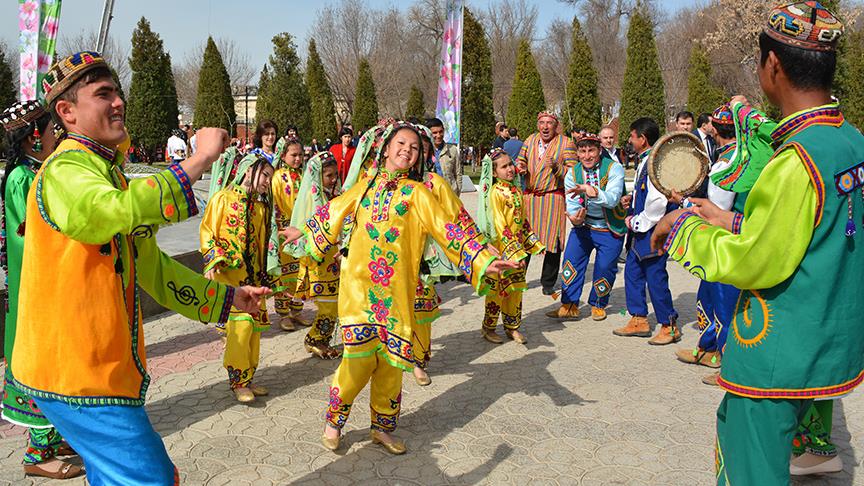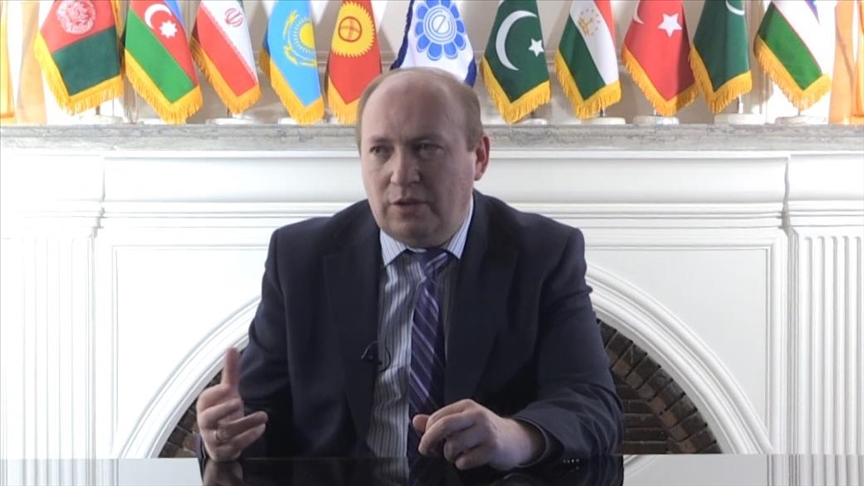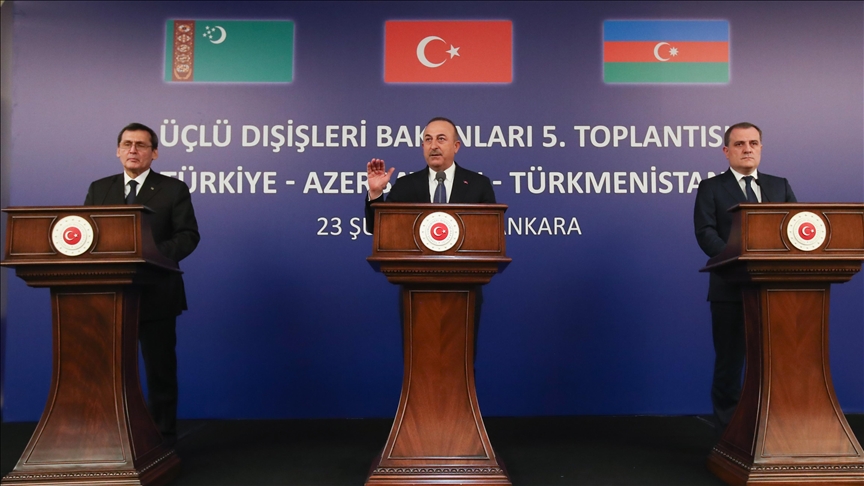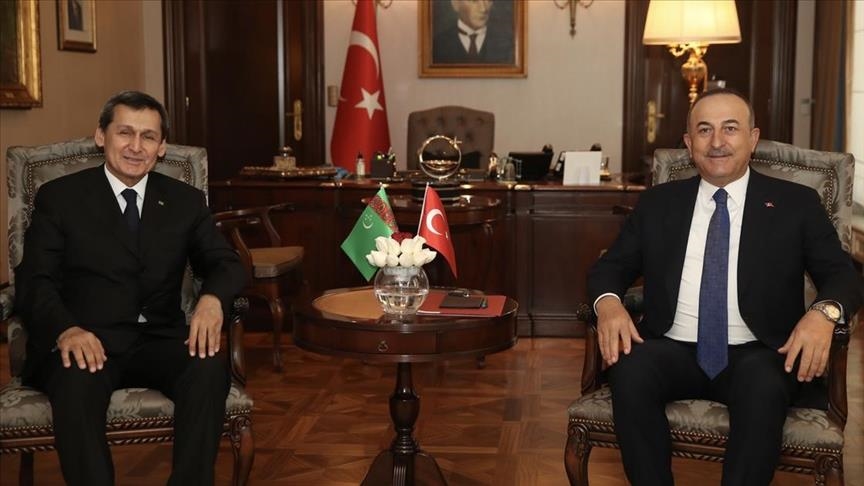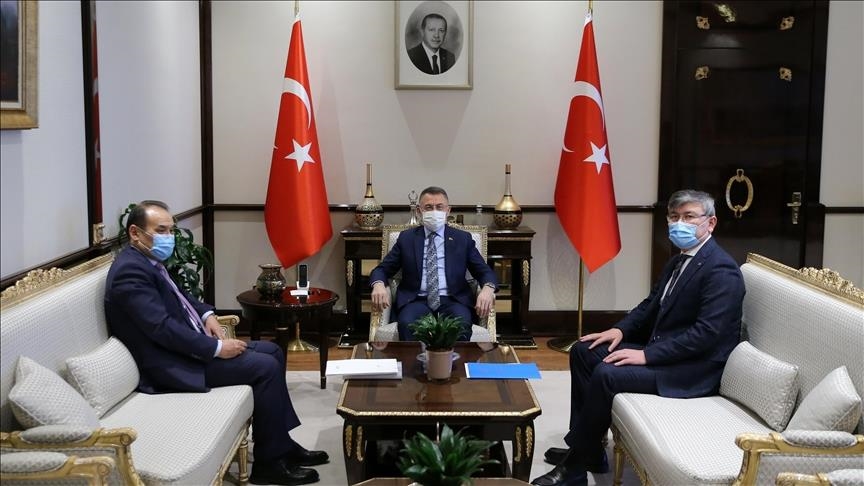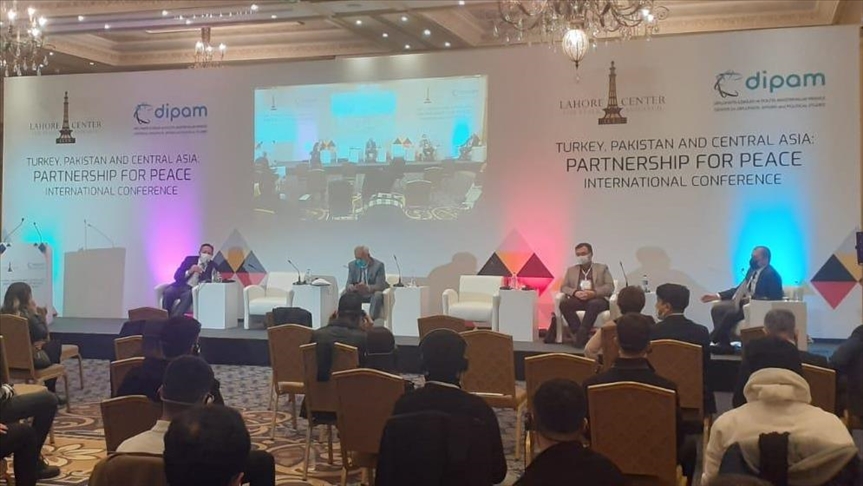ISTANBUL
To further cooperation among Turkey, Azerbaijan, Pakistan and Central Asian nations, there is a need to harmonize their developmental strategies, and infrastructure development could pave the way, said speakers at an international conference in Istanbul.
“These countries are at different levels of development and we should find ways to harmonize development strategies of these countries,” said Mesut Hakki Casin, an advisor for Turkey’s Center for Diplomatic Affairs and Political Studies.
“Each country has its own priority areas like European Union for Turkey,” Casin said at a peace conference co-hosted by the Istanbul-based research center in partnership with Pakistan’s Lahore Center for Peace Research on Tuesday.
“It does not necessarily mean Turkey will turn its back to East [rather] Turkey with its EU aspirations will be more beneficial to Pakistan, Iran, Azerbaijan, and other countries,” he added.
‘Security to aid economic arrangement’
Salman Shah, an expert from Pakistan, noted that the cooperation among these nations depends on infrastructure, including transport, soft power, and local money.
“Turkey is growing fast and is a gateway to Europe while Pakistan is a gateway to China and Central Asia,” he said, adding that markets were becoming more important than resources.
“Turkey, Iran and Pakistan are key countries and anybody who has to deal with Eurasia has to deal with these three countries,” he underlined.
Calling China’s infrastructure alliance as a “new model” of development, Shah insisted on building physical transportation and other related infrastructure that “can have plenty of opportunities.”
“The China-Pakistan Economic Corridor infrastructure runs close to Iran and Afghanistan, and it is a matter of time when it gets connected to these countries and then to Turkey and other countries,” he said.
Citing the Ottoman, Safavid, and Mughal empires, which had inter-trade ties and other relations, Shah said there is a “need to revive them.”
Shah said the responsibility of security of “our region should be within ourselves.”
“Security of the economic arrangement of these countries should remain with them and Turkey- Pakistan military exercises are significant in this,” he added, referring to just-concluded Ataturk 2021.
“Security of our region belongs to us – it is very good that Turkey on one end and Pakistan on the other end are collaborating in this regard,” he said. “Our problem is internal security of our region, making it viable for economic and cultural development.”
‘Collaboration for regional peace and development’
Vugar Bayramov, from Azerbaijan, said cooperation among Azerbaijan, Turkey, and Pakistan in strategy, projects and promotes regional peace and development.
Referring to trilateral cooperation among these countries, he said: “Connectivity – regional transportation corridors are essential for sustaining peace and development.”
“Transport corridors will increase exports and operations within different regions,” said Bayramov, Chairman of the Center for Economic and Social Development. “They connect supplies and demands.”
Recalling Azerbaijan’s call to Pakistan and Turkey to invest in Nagorno-Karabakh, Bayramov said the infrastructure development and connectivity would “promote multi-lateral relations with other countries.”
Meruert Makhmutova from Kazakhstan pointed to the oil-based economy of her country and the Central Asian region.
“Oil plays an important role in the economy in Kazakhstan,” Makhmutova, director of the Almaty-based Public Policy Research Center, told the conference.
“And the diversification of the economy, in Central Asian nations, will play an important role in connectivity,” she said.
She said in international cooperation, Turkey has great opportunities in Kazakhstan.
ISTANBUL
To further cooperation among Turkey, Azerbaijan, Pakistan and Central Asian nations, there is a need to harmonize their developmental strategies, and infrastructure development could pave the way, said speakers at an international conference in Istanbul.
“These countries are at different levels of development and we should find ways to harmonize development strategies of these countries,” said Mesut Hakki Casin, an advisor for Turkey’s Center for Diplomatic Affairs and Political Studies.
“Each country has its own priority areas like European Union for Turkey,” Casin said at a peace conference co-hosted by the Istanbul-based research center in partnership with Pakistan’s Lahore Center for Peace Research on Tuesday.
“It does not necessarily mean Turkey will turn its back to East [rather] Turkey with its EU aspirations will be more beneficial to Pakistan, Iran, Azerbaijan, and other countries,” he added.
‘Security to aid economic arrangement’
Salman Shah, an expert from Pakistan, noted that the cooperation among these nations depends on infrastructure, including transport, soft power, and local money.
“Turkey is growing fast and is a gateway to Europe while Pakistan is a gateway to China and Central Asia,” he said, adding that markets were becoming more important than resources.
“Turkey, Iran and Pakistan are key countries and anybody who has to deal with Eurasia has to deal with these three countries,” he underlined.
Calling China’s infrastructure alliance as a “new model” of development, Shah insisted on building physical transportation and other related infrastructure that “can have plenty of opportunities.”
“The China-Pakistan Economic Corridor infrastructure runs close to Iran and Afghanistan, and it is a matter of time when it gets connected to these countries and then to Turkey and other countries,” he said.
Citing the Ottoman, Safavid, and Mughal empires, which had inter-trade ties and other relations, Shah said there is a “need to revive them.”
Shah said the responsibility of security of “our region should be within ourselves.”
“Security of the economic arrangement of these countries should remain with them and Turkey- Pakistan military exercises are significant in this,” he added, referring to just-concluded Ataturk 2021.
“Security of our region belongs to us – it is very good that Turkey on one end and Pakistan on the other end are collaborating in this regard,” he said. “Our problem is internal security of our region, making it viable for economic and cultural development.”
‘Collaboration for regional peace and development’
Vugar Bayramov, from Azerbaijan, said cooperation among Azerbaijan, Turkey, and Pakistan in strategy, projects and promotes regional peace and development.
Referring to trilateral cooperation among these countries, he said: “Connectivity – regional transportation corridors are essential for sustaining peace and development.”
“Transport corridors will increase exports and operations within different regions,” said Bayramov, Chairman of the Center for Economic and Social Development. “They connect supplies and demands.”
Recalling Azerbaijan’s call to Pakistan and Turkey to invest in Nagorno-Karabakh, Bayramov said the infrastructure development and connectivity would “promote multi-lateral relations with other countries.”
Meruert Makhmutova from Kazakhstan pointed to the oil-based economy of her country and the Central Asian region.
“Oil plays an important role in the economy in Kazakhstan,” Makhmutova, director of the Almaty-based Public Policy Research Center, told the conference.
“And the diversification of the economy, in Central Asian nations, will play an important role in connectivity,” she said.
She said in international cooperation, Turkey has great opportunities in Kazakhstan.

